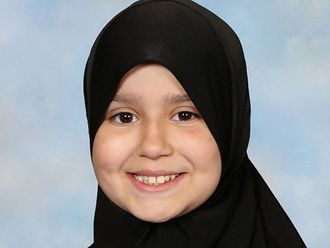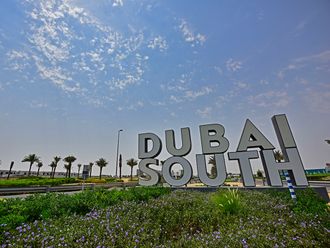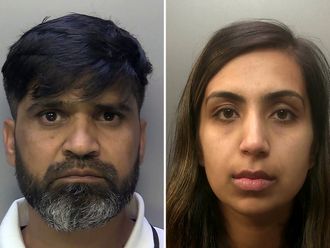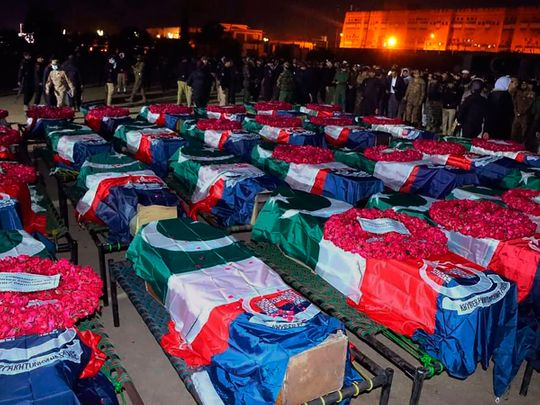
Peshawar, Pakistan: Bodies were still being pulled Tuesday from the wreckage of a mosque blast that targeted police officers in northwestern Pakistan, killing at least 100 people and wounding 170 more.
The attack happened Monday during afternoon worship in the provincial capital of Peshawar, close to areas along the Afghan border where militancy has been steadily rising.
Overnight, at least nine bodies were recovered as rescuers sifted through the rubble of the mosque's collapsed wall and roof.
"This morning we are going to remove the last part of the collapsed roof so we can recover more bodies, but we are not hopeful of reaching any survivors," Bilal Ahmad Faizi, a spokesperson for the rescue organisation 1122, told AFP.
Muhammad Asim Khan, a spokesman for the main hospital in Peshawar, told AFP that 83 people had been killed, with the death toll rising as more bodies arrived from the scene.
At least 20 of the slain police officers were later buried after a prayer ceremony, with coffins lined up in rows and draped in the Pakistan flag.
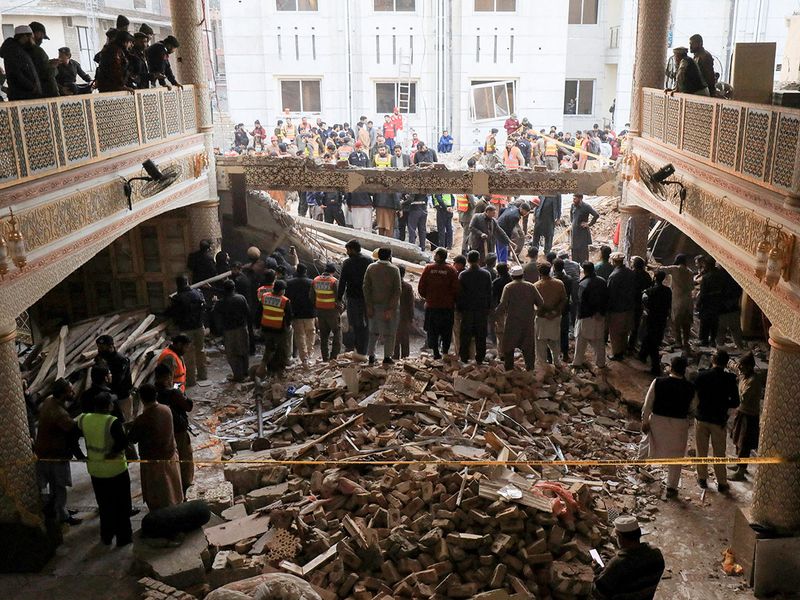
They were laid to rest with a guard of honour, a police official told AFP.
Shahid Ali, a policeman who survived, said the explosion took place seconds after the imam started prayers.
"I saw black smoke rising to the sky. I ran out to save my life," the 47-year-old told AFP.
The attack, in the Police Lines district, was the deadliest in a decade to hit this restive, northwestern city near the Afghan border and comes amid a surge in violence targeting police. No group has claimed responsibility.
“My son, my child,” cried an elderly woman walking alongside an ambulance carrying coffins, as rescue workers stretchered wounded people to a hospital emergency unit.
At least 170 people were wounded in the blast, which demolished the upper storey of the mosque as hundreds of worshippers performed noon prayers.
Riaz Mahsud, a senior local government official, said the casualty toll was likely to rise as workers searched through the debris just over 24 hours later.
Authorities say they do not know how the bomber managed to breach the military and police checkpoints leading into the Police Lines district, a colonial-era, self-contained encampment in the city centre that is home to middle- and lower-ranking police personnel and their families.
The police headquarters in Peshawar is in one of the most tightly controlled areas of the city, housing intelligence and counter-terrorism bureaus, and is next door to the regional secretariat.
Provinces around the country announced they were on high alert after the blast, with checkpoints ramped up and extra security forces deployed, while in the capital Islamabad, snipers were deployed on buildings and at city entrance points.
"Terrorists want to create fear by targeting those who perform the duty of defending Pakistan," Prime Minister Shehbaz Sharif said in a statement.
Pakistan is also preparing to host an International Monetary Fund (IMF) delegation on Tuesday as it works towards unlocking a vital bailout loan to prevent a looming default.
UN Secretary-General Antonio Guterres on Monday condemned the blast as "abhorrent", and US Secretary of State Antony Blinken extended his condolences for the "horrific attack".


